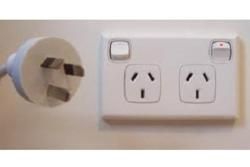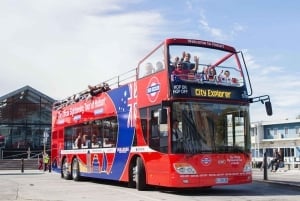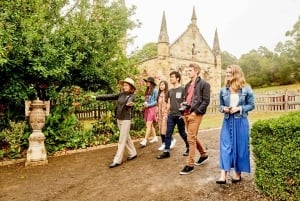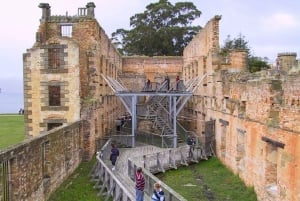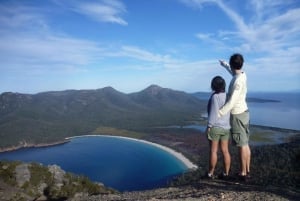Practical Information
Following the Boy Scout Motto "be prepared" is a great help when traveling and visiting foreign countries and to help to do so here is some practical information to help you enjoy your visit to Tasmania.
Local Time
Tasmania's time zone is UTC +10 as is the Eastern Seaboard of Australia.
Tasmania runs on daylight savings time which begins at 2.00 am on the first Sunday in October and ends at 2.00am on the first Sunday in April. During daylight savings the time will be UTC +11 as the time is advanced by 1 hour.
The length of day in Tasmania varies from 9 hours in June to over 15 hours in Summer. With daylight savings sunrise and sunset are about 5.30 am and 8.50 pm in summer. Plenty of time for long, lazy afternoons at the beach or alfresco dining.
Tasmanian Local Time
Business Hours
Banks: Most banks are open from 9.30 am to 4.00 pm Monday to Friday.
The main 4 Australian banks are ANZ, The Commonwealth, NAB and Westpac. There are also a number of credit unions in major centres throughout the state.
Retail Stores: opening hours are unrestricted in Tasmania and large supermarkets are generally open from 7.00 am to 9.00 pm seven days a week. There are some smaller convenience stores which are open longer.
ATMs and EFTPOS facilities are also widely available.
Post Offices are run by Australia Post and most stores have a good range of merchandise for sale. Opening hours for major post offices is usually 9.00 am to 5.00 pm Monday to Friday.
Some news agencies throughout the state are agents for Australia Post and also for some banks. Opening hours for these vary but are usually open earlier and close later than Post Offices and are also open on Saturdays.
Phone and Internet
Mobile (Cell) phone coverage is very good in all major towns but can drop out all together when off the beaten track. The main provider is Telstra which has the best coverage of the state. Optus also has a network which is good in most major towns but not so good in the country areas.
International roaming is available and rates depend on your individual carrier.
Emergency numbers are 000 for landlines and 112 for mobiles.
Payphones are widely available in all cities and towns throughout the state and the cost of a local call is 50 cents. There are a number of types of payphones available, some with sms capability, others take phonecards or credit cards even some with tele typewriters for the hearing impaired. Telstra also provide a website search for payphones.
Internet WiFi services are widely available with various rates applying. Free WiFi is available at McDonalds, Hungry Jacks and KFC restaurants. Andy's bakery and cafe in Westbury has free WiFi access and is open 24 hours a day. Most accommodation have WiFi services with various rates, some of which can be quite high and some are free.
A number of internet cafes can be found in CBD's of the cities with rates around $6 per hour.
Tasmanian Libraries are a great resource for computers and internet access and are situated in most towns. Fees apply for international tourists and are charged at $5.50 for 30 minutes of internet email. Computers are often in high demand and it pays to book ahead. WiFi access is not available. Tasmanian libraries are a good place to catch up with local community events or just sit and read one of there many magazines and journals.
Electricity in Australia is 220-240V AC, 50 Hz. Power plugs have three flat pins so many visitors from overseas may need a plug adapter. Some of the larger accommodation providers have international power outlets in their bathrooms for shavers.
For those with chargers for laptops, cameras etc. if the input range shown on the charger is within the 220-240V range they should be ok to use with just a plug adapter.
If it's outside this range, you will have to buy a transformer to increase or decrease the Australian voltage as necessary.
Drinking water via tap in Tasmania is of high quality and freely available in all towns and cities. Any water that is not drinkable will have an non potable sign. Bottled water is also available at supermarkets and corner stores. When camping it may be necessary to take your own drinking water as some campsites, particularly in National Parks or off the beaten track don't provide it.
Bargaining when buying
If you love to haggle you may come away from the major shops a few dollars better off but the place to save is at the markets and garage sales throughout the state.
There are many fine markets on each weekend with all sorts of produce and crafts available, one of the best known is the Salamanca market in Hobart. The best thing about the markets is the opportunity to talk to the locals who will gladly advise you on what to see and do.
Grab a local newspaper on a Saturday morning and check out the garage sales for some great bargains on all sorts of things.
Tipping
Tipping is not compulsory or expected in Tasmania but if you think the service you are given is exceptional then feedback is always appreciated.
Public toilets throughout Tasmania are generally of high standard and well serviced and can be located here. Most service stations offer free use of restrooms and are usually well maintained.
Information is available while travelling round Tasmania from the many Tourism centres and at roadside stops which are sign posted with the information symbol, a yellow i on a blue background.


